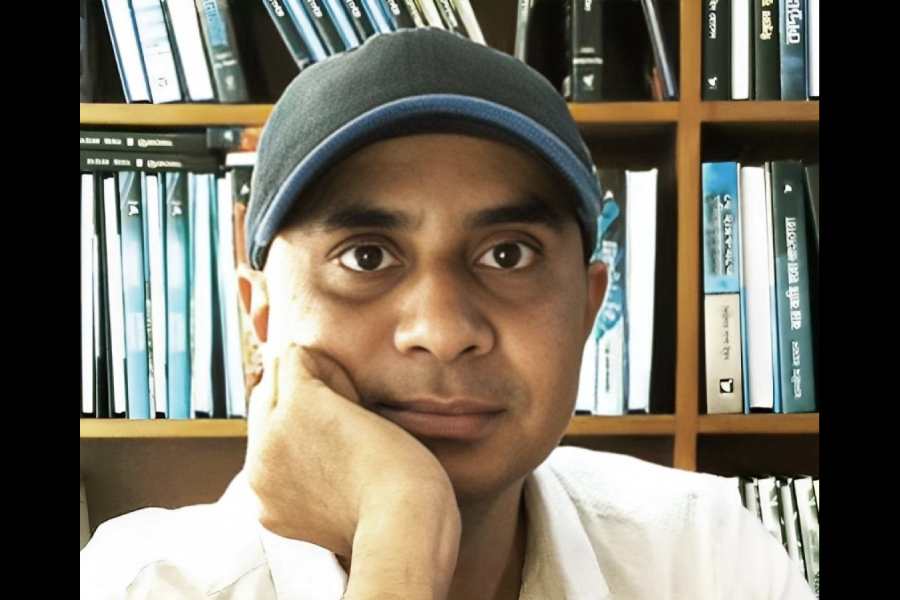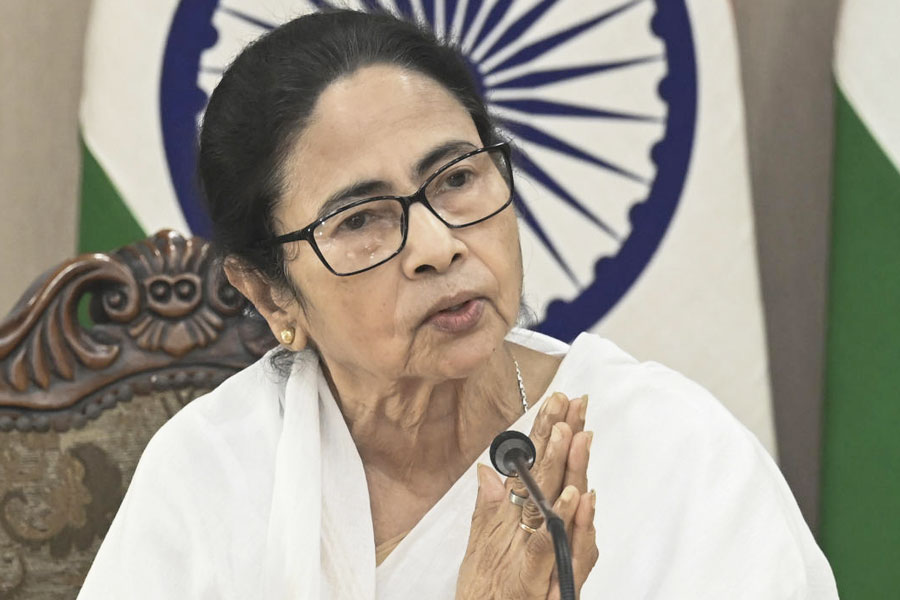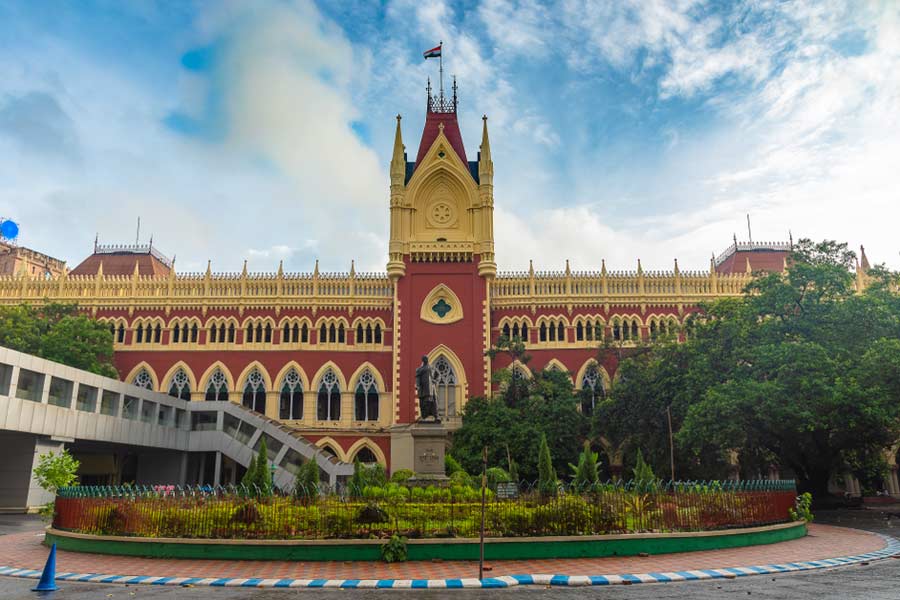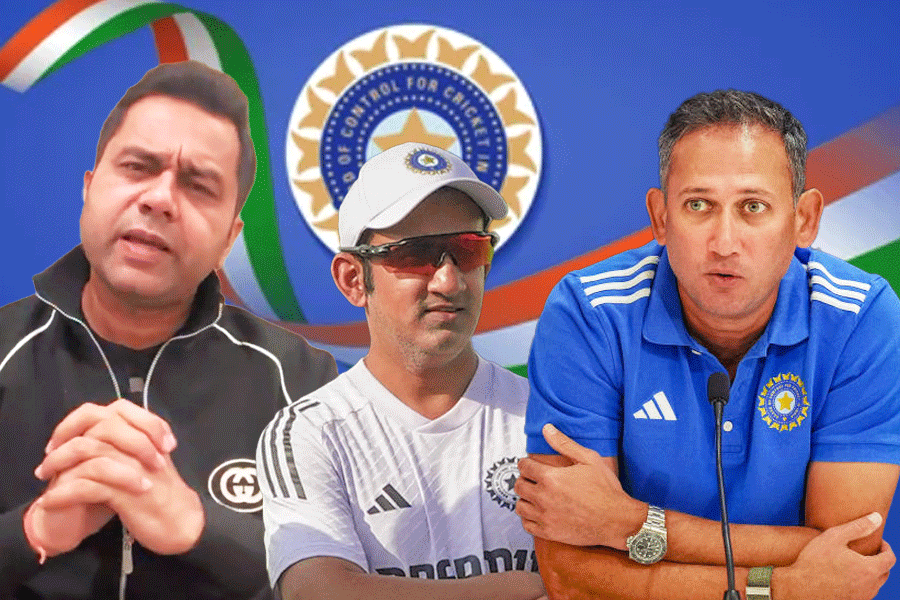Rabindranath did not ever come to eat here. Rabindranath ekhane kokhono khete ashen ni.
This act of omission by the great poet is explained in several ways and his name is cleared. It was not Tagore’s fault that he did not turn up at the location; he was not guilty of condescension towards the place. But that is not the end of the matter. The above sentence is the name of a restaurant that stands dazzlingly, but mysteriously, in a small town in Bangladesh, serving food that compels a customer to go back to it again and again.
The food is crafted by the owner of the restaurant and is magical and menacing in equal parts. So is the owner of “Rabindranath”, the stunningly beautiful woman Mushkan Juberi, red wine-drinking and Tagore-spewing, who does not like to call her establishment a “restaurant”.
Into this scene are thrown a few old-fashioned corpses and a new-age detective. All this is happening in the detective novel by Mohammad Nazimuddin, the writer from Bangladesh, who titles his story after the restaurant that is not a restaurant.
If we can do away with the categories of “popular” and “serious” for the time being, Rabindranath ekhane kokhono khete ashen ni can be considered a landmark in contemporary Bengali fiction.
Copies worth Rs 1 lakh were sold in just one day, says Maruf Hossain of Abhijan Publishers, Nazimuddin’s publisher in Calcutta. Lakhs of copies have sold in Bangladesh and West Bengal since its publication in Dhaka in 2015 — the Calcutta edition was published in 2017. But the book has done more; it has announced a new kind of detective fiction in Bengali and has sparked off a thriller revolution in Bangladesh, the shocks of which are being felt distinctly in Bengal.
From May 18 to 25, Calcutta witnessed the 1st Kolkata Thriller Lit Fest 24 at Abhijan Book Cafe at College Square. Nazimuddin did not attend, but his presence was strong. The event was organised to celebrate his birthday, which falls on May 19.
The cafe was full to the brim through the 22 sessions it hosted across eight days. It was clear that Bengalis are reading — and writing — thrillers, more than they did 10 years ago, about the time Nazimuddin wrote Rabindranath. The event seemed to be crowded with as many writers as readers of thrillers.
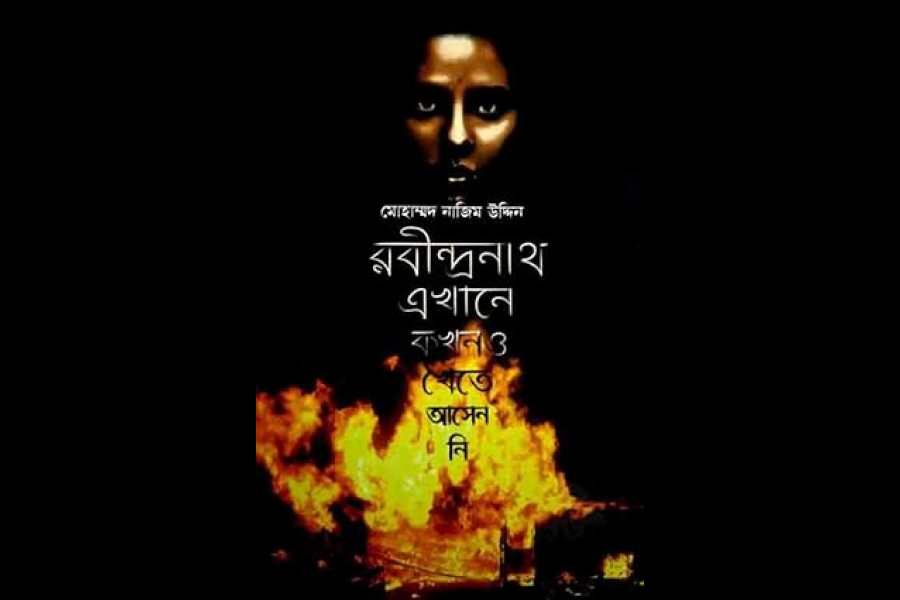
Book by Bangladeshi thriller writer Md Nazimuddin
It is not a coincidence, believes Hossain, who also runs Abhijan cafe, that the new interest in thrillers starts from the time Nazimuddin began to publish his fiction. Hossain publishes books from Bangladesh and West Bengal across genres. “About 10 per cent of the books published by us are thrillers, but they constitute 60 per cent of the books sold,” he says. Nazimuddin is the main reason behind the thriller boom, he adds.
Not everyone agrees. “Current trends in films, television and OTT platforms, as well as social media have created a racy storytelling that is grounded in facts and processes and not wild fantasies,” says Avijit Khan of Biva Publications, Calcutta, that supported the lit fest.

Abstract classic clock with an alarm clock in a blue room with a window at night
And it is not as if there was no good thriller writer in the recent past: Anish Deb is a case in point.
But Nazimuddin’s contribution to Bengali thriller writing is undeniable. His detectives have announced new laws and put away some old ones, such as the one about amateur detectives, even if they remain famous and alive on screen.
Speaking to The Telegraph from Dhaka, Nazimuddin agrees that it is hard to imagine an amateur detective now. Both his detectives — Noor-e Chhafa in the Rabindranath series and Jeffrey Begh in the Begh-Bastard series — are efficient officers, but not supermen. They may be inspired by a tradition of the flawed policeman-detective already popular globally, such as in Ian Rankin’s novels, but Nazimuddin’s sleuths fit well into the flawed reality here too.
Detective fiction and thrillers perform an important function that real life often cannot. They end evil, restore society to order. “They are cathartic,” says Nazimuddin. In that sense their appeal is timeless and thrillers are at the core of the oldest and the best of literature, from the Mahabharata to Oedipus Rex, but they shift shape according to age.

Bangladeshi writer Mohammad Nazimuddin
Nazimuddin pays great attention to details. Take for instance the name Noor-e Chhafa. “I could have used any standard name,” he says. But Chhafa’s Chittagong origin emerges from his surname. In Rabindranath, the sordidness of a small town, mixed with the charms of a femme fatale and the smell of danger, come alive in detail even as a corrupt system that perpetuates the same oppressions from before Bangladesh won its independence forms the backdrop. It is a potent mix. Nazimuddin writes the smallest of chapters, which end at a “then what” moment and ensure a regular rush of adrenaline. The pages keep turning. “Some of those who bought Rabindranath were
reading a book for the first time,” says Hossain.
From very early in life, Nazimuddin had wanted to write detective fiction, but was rejected by publishers who did not want original writing. So he translated Western bestsellers into Bengali. When he was finally tired, he decided to self-publish and brought out Nemesis, having set up his own publishing firm, Batighar Prakashan, in Dhaka. Nemesis was followed by six books in the Begh-Bastard series.
Realising that there is a demand for the genre, he decided to rope in others. “In the last few years I have helped 50 to 60 writers publish from Batighar,” he says.
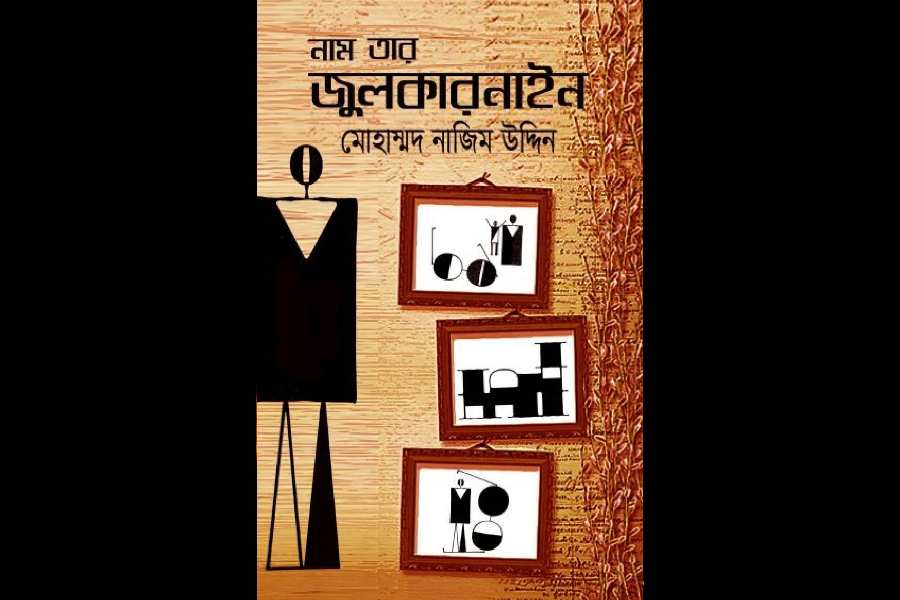
Book by Bangladeshi thriller writer Md Nazimuddin
One of the Batighar writers is 28-year-old Kishor Pasha Imon, who already has 17 books to his credit, including the thriller Jadughar Pata Achhe Ei Ekhane or A Museum is Laid Out on this Spot. It is about a hitman on the run from Dhaka and hiding in a Chakma village.
Imon is on the hit list of fundamentalists in Bangladesh. He is now doing his PhD in the US, but he is not on the run. He returns home every year. “Because I believe that someone living a safe, risk-averse life should not be writing thrillers.”
Batighar keeps the fire burning. Many of its writers have been published from Calcutta by Abhijan, such as Imon. Abhijan proudly shows the thriller writers published from this side of the border — Sushmita Saha, who writes about the events of the mind, Shuddhendu Chakraborty, who writes on the medical world, Souvik Das, whose area is archaeology, and Tushar Sardar, who writes about crimes in railway departments. Khan of Biva mentions Sayantani Putatunda and her series, the Prakhar Rudra
series by Koushik Roy, Sayak Aman and Aniruddha Sau. Eken Babu’s creator Sujan Dasgupta and Supratim Sarkar, whose writings are based on police records, are extremely popular.
If critical acclaim has eluded Rabindranath, it has not been entirely unhonoured either. Srijit Mukherjee has made a web series of it for Hoichoi. And it has been translated into English by V. Ramaswamy, which will be published by Harper Collins.
The title of Rabindranath is inspired by a Madrid restaurant that said “(Ernest) Hemingway did not eat here,” says Nazimuddin. “My novel is a tribute to Tagore.”
It is also an audacious act that seems to say that thrillers escape the attention of many, but maybe they are worth it.

